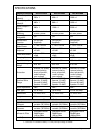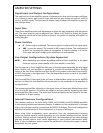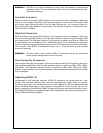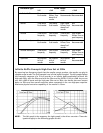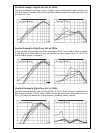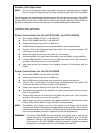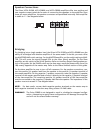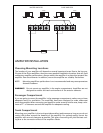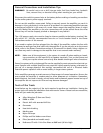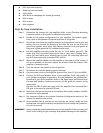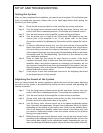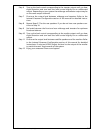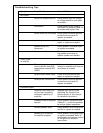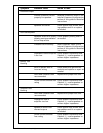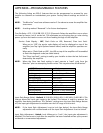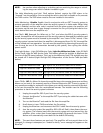
14
© 2005 Directed Electronics, all rights reserved
General Precautions and Installation Tips
WARNING! Be careful not to cut or drill into gas tanks, fuel lines, brake lines, hydraulic
lines, vacuum lines, or electrical wiring when working on your vehicle.
Disconnect the vehicle's ground wire at the battery before making or breaking connections
to the audio system's power supply terminals.
Do not use this amplifier unmounted. Failing to securely mount the amplifier can result in
damage or injury, particularly in the event of an accident. An unmounted amplifier becomes
a dangerous projectile in the event of a crash. Never mount the amplifier where it might
get wet. Mount the amplifier so the wire connections will not be pulled. Route the wires
where they will not be scraped, pinched or damaged in any fashion.
The +12V power supply wire must be fused as close as possible to the battery terminal, ide-
ally within 18". Use the recommended fuse size or circuit breaker listed in the Power
Connections section of this manual.
If you need to replace the fuse plugged into the side of the amplifier, replace the fuse with
the same size and type fuse that came with the amplifier. If you are not sure as to the correct
value, refer to the Power Connections section of this manual for details. Using a higher cur-
rent fuse may result in damage to the amplifier that is not covered under warranty.
NOTE: Make sure all the equipment in the system is turned off when making or break-
ing connections to the input RCAs or speaker terminals. Turn on the system and
slowly turn up the volume control only after double checking all wire connections.
Power for systems with a single amplifier can be supplied by most automotive electrical sys-
tems. Systems with multiple amplifiers may require a higher capacity battery, alternator or
the use of a storage capacitor. We strongly recommend the use of a Directed Audio
Essentials power capacitor with an extra battery in larger stereo systems.
Orion amplifiers generate a certain amount of heat as part of normal operation. Be sure the
area around the amplifier is unobstructed to allow adequate air circulation. Remember,
beach blankets, last week's laundry, school books and homework papers located on top of
the amplifier do not improve air flow and may become damaged.
Tools of the Trade
Listed below are the majority of the tools required to perform an installation. Having the
proper tools will make the installation that much easier. Some of these tools are necessities;
some will just make the job easier.
● Allen Wrenches (2.5mm and 3mm)
● DMM or VOM
● Electric drill with assorted drill bits
● Grommets
● Heat shrink tubing
● Marking pen
● Nylon tie straps
● Phillips and flat blade screw drivers
● Pliers (standard and needle nose)
● Reference CD with 1 kHz Sine Wave at 0dB level (all bits high)



